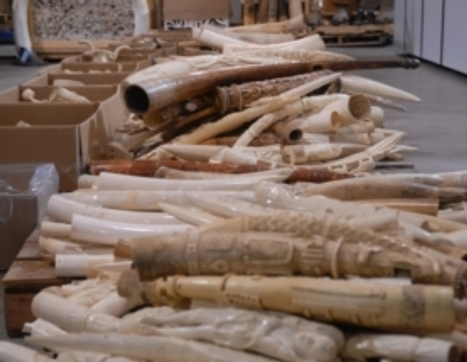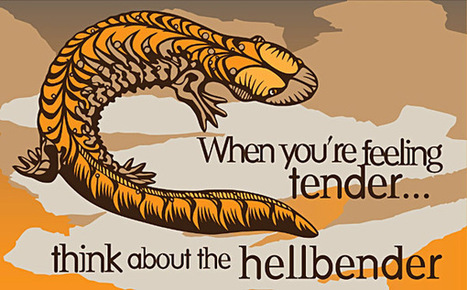If polar bears or tigers became extinct tomorrow, would you mourn them? Probably. But if an unfamiliar animal vanishes, would you feel the loss?
Get Started for FREE
Sign up with Facebook Sign up with X
I don't have a Facebook or a X account
 Your new post is loading... Your new post is loading...
 Your new post is loading... Your new post is loading...

PIRatE Lab's curator insight,
January 8, 2015 1:24 AM
I am not one for banning all of everything. But there are certain things that I actively choose not to eat for ecological or ethical reasons. But I am not one to stop eating all fish simply because we are not properly managing some (or the majority of) stocks. But Ahi (bluefin and big eye) Tuna has now entered into that realm for me. This is very sad for me. I think of the seafood I used to eat when I was younger and it is not what I eat now.
Most conspicuously, abalone is no longer part of my diet unless I pick up a few small steaks from my mariculture friends' farms. That was literally what my extended family built parts of our summers around when I was a child: men popped, kids transported them up the cliffs, and the ladies pounded the steaks so that all had frozen abalone steaks for the year. Now it is not only illegal to harvest abs here in my region of California, but there literally are none to be had. Victims of overfishing, elevated sea temperatures, Rickettsia-like infections, etc.
These times are always very interesting to me: swearing off gas-powered personal vehicles, blood diamonds, drinking too many drinks on a Friday night, etc. When the facts are in that we really need to do something different to be responsible adults and members of our larger community, follow through can be difficult. It should be that the more "first world problem-y" the issue is, the easier it should be to quit or change our behavior. After all, we are not talking here about a choice of feeding our family or going hungry. But it seems the psychology of such "superficial" changes vs. more consequential/truly difficult choices is much more similar than it is distinct. This posting is a great example of that.
|
|



















